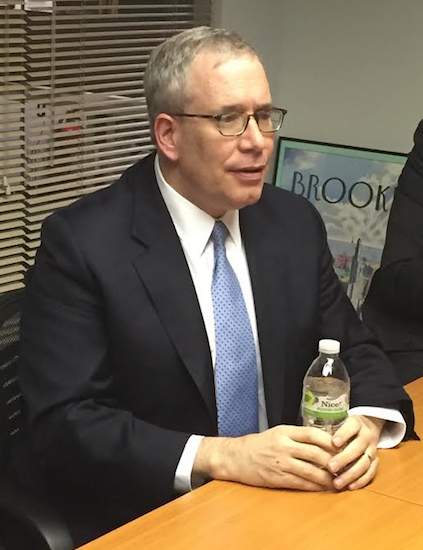Stringer criticizes de Blasio affordable housing plan
Says city should engage each community in process

Comptroller Scott Stringer says the affordable housing plan could have “enormous financial ramifications” for the city. Eagle photo by Shlomo Sprung
Charging that “a one-size-fits-all approach” to rezoning doesn’t work in a complicated, diverse metropolis like New York, New York City Comptroller Scott Stinger criticized Mayor Bill de Blasio’s ambitious and controversial affordable housing plan.
“This plan must change,” Stringer candidly told the Brooklyn Eagle on Tuesday.
Instead of proposing a massive rezoning plan across the city to accommodate the construction of hundreds of thousands of affordable housing units, the de Blasio administration should be working with each community on an individual basis to ascertain their needs and alleviate their concerns, Stringer said.

Brooklyn Heights
View MoreRead the Brooklyn Height's Press and Cobble Hill News. Find out more about Brooklyn Height's History here.